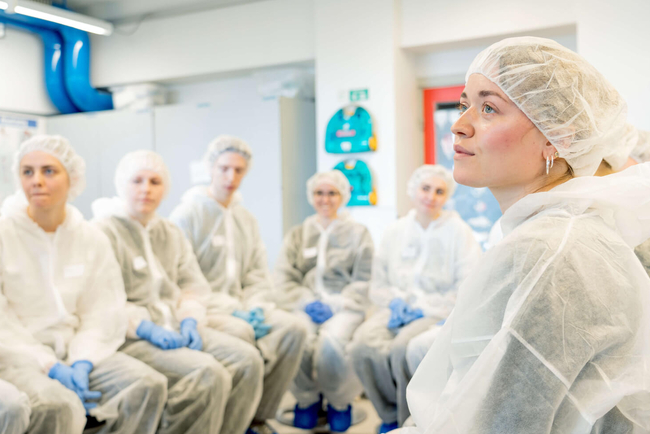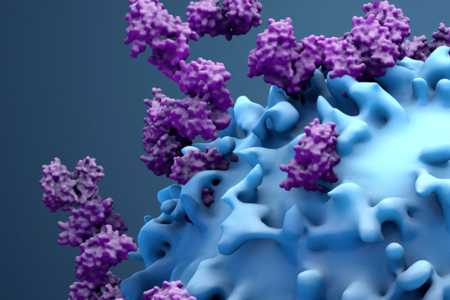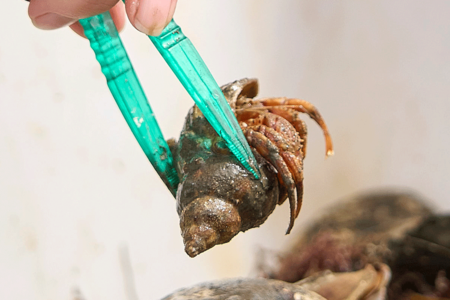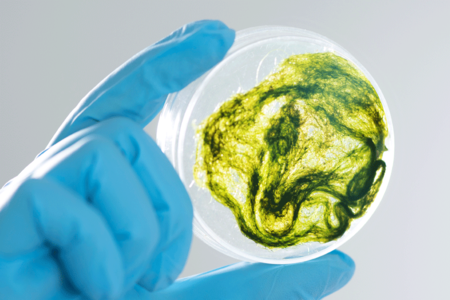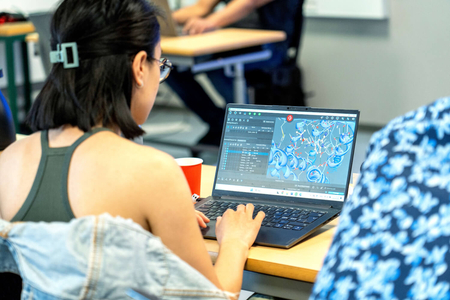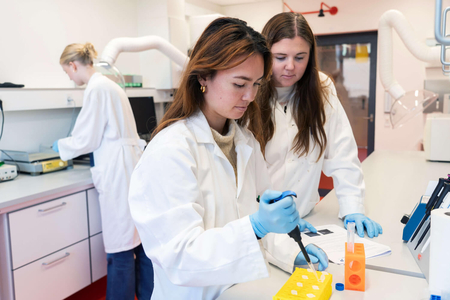About the programme
The programme focuses on the study of the biological processes affecting human beings in health and disease. It is a well-established and well-funded programme with an extensive and ambitious curriculum, research-based education and highly renowned lecturers. Graduates will be able to conduct independent research, both in basic- and clinical fields, as well as to evaluate and consult on complex problems relating to human health.
What makes the programme at UCPH unique?
The broad and intense study of human biology combined with substantial research and experimentation work gives you a unique set of biomedical and research skills. The programme tailors the candidates for pursuing a PhD and makes them attractive for the pharmaceutical industry. The programme is highly research oriented, interdisciplinary and has an international student profile and outlook.What specialisations does the field of study offer?
You will obtain a broad and comprehensive understanding of the human organism in health and disease by focusing on integrated and mechanism-oriented cell biology, pathophysiology, and pharmacology. Combined with substantial research and experimental work you get a unique set of biomedical and research skills. During the second year you specialise in your area of interest through electives and an extensive thesis work.Admission and application
To apply for admission to this master's degree programme, you must have completed a qualifying bachelor’s degree or a similar Danish or international degree programme which is assessed to be relevant. Apply for admission via the application portal.
Below, you can read more about admission requirements and which documents to upload in the application portal.
Academic admission requirements
Here you'll find the different academic requirements depending on which qualifying degree you hold.
There are no bachelor’s degrees that give legal right of admission to the MSc in Human Biology.
If you hold one of the degrees listed below from a Danish University or abroad, you are considered to meet all academic admission requirements and have direct access to apply to the master’s degree programme in Human Biology.
- Bachelor of Science in Molecular Biology and Chemistry
- Bachelor of Science in Medicinal Chemistry
- Bachelor in preventive medicine
If you have a bachelor’s degree, professional bachelor’s degree or equivalent from a Danish or international university you are qualified for admission if your programme is within the following areas:
- medicine
- odontology
- biochemistry
- biology
- pharmaceutics
- exercise and sport sciences
Furthermore, you must have obtained at least 5 ECTS within biology, biochemistry or pharmacology.
Note, that having a bachelor’s degree that automatically fulfil the admission requirements does not guarantee you admission to the programme.
You must have earned your bachelor’s degree within a maximum of 5 years prior to the start of the first semester of the master’s programme, e.g. for the intake in the autumn of 2026, you must have graduated by September 2021 or thereafter. In exceptional circumstances the Admissions Committee may waive the graduation year requirement.
If your bachelor’s degree is too old, you can apply for an exemption from the graduation year requirement. If you choose to apply for an exemption, you must submit the following documents along with your application for admission:
- A letter explaining how you have maintained your academic qualifications since graduation (e.g. relevant work, internships, further studies)
- Relevant documentation (e.g work contracts, diplomas etc).
If you already have a master's degree from Denmark or another country, you can, in principle, only be admitted to a new degree programme if there are places available on the programme for which you are applying for admission.
When we assess whether you meet the admission requirements for the master's degree program, Danish legislation only allows us to assess your bachelor's degree. Consequently, you cannot study supplementary courses between bachelor's and master's degree programs in order to meet the admission requirements.
If you have passed courses/projects before you complete the qualifying bachelor's degree, these can be included in the assessment, even though they are not part of the bachelor's degree program.
- It applies to courses/projects you have taken as single subjects and courses/projects you have taken as part of another study program.
- A maximum of 30 ECTS credits of these courses/projects may be included.
Language requirements
Applicants to a master’s programme taught in English must document their English language proficiency in accordance with the language requirements for admission.
Notification of Changes to Language Requirements
There will be implemented changes to the documentation deadline and the language requirements for students applying for the University of Copenhagen's master's programmes with study start 1 September 2026 and 1 September 2027 respectively.
If you have legal right of admission to the programme that you are applying for, you are not required to document your proficiency in English.
If you have completed your upper secondary education in Denmark, you must upload a copy of your upper secondary education diploma as documentation for your English proficiency.
All other applicants must document qualifications equivalent to the Danish upper secondary school ‘English level B’ or ‘English level A’.
Your documentation must be valid at the application deadline that applies to you.
- Citizens from a country outside the EU, EEA or Switzerland: 15 January
- Citizens from Denmark, EU, EEA or Switzerland: 1 March
We accept the following ways of documenting English qualifications equivalent to the Danish upper secondary school ‘English level B’ or ‘English level A’:
You have studied an upper secondary school diploma in Denmark or one of the Nordic countries.
You must upload a copy or scan of your transcript from a Danish upper secondary school to document that you have passed English level B or higher.
If you have passed a Nordic entrance examination with an English level comparable to the Danish level B or higher, you must upload your transcript that documents the subjects you have passed.
You must upload a copy or scan of your transcript to document that you have passed one of the following levels:
- English A1, A2 or B, higher level (HL),
- English A1 or A2 standard level (SL)
- English A Literature or English A Language and Literature, higher Level (HL) (from 2013)
- English A Literature or English A Language and Literature, standard Level (SL) (from 2013)
- English B, standard level (SL)
You must upload a copy or scan of your transcript to document that you have passed the course:
- English language 1 (LI), English language 2 (LII) or English language 3 (LIII) with a minimum score of 50%
The EB must be passed at one of the European Schools placed in Copenhagen, Bruxelles, Luxembourg, Mol, München, Frankfurt, Karlsruhe, Varese or Alicante.
You must upload your transcript from the educational institution as documentation that you have passed:
- Danish upper secondary school 'English level B' (Engelsk B) or
- Danish upper secondary school ‘English level A’ (Engelsk A).
You must upload a copy or scan of your transcript to document that you have passed the course:
- English Leistungsfach (LF) OR
- Erhöhtes Anforderungsniveau (eA) OR
- Kernfach (KF) OR
- Profilfach/Profilgebendes Fach (PgF)
All with a maximum score of 4 (Ausreichend).
You must document that you have passed one of the following accepted tests:
- IELTS Academic (taken at an IELTS test centre, online, or Home Edition)
- TOEFL iBT, TOEFL iBT paper edition or TOEFL iBT Home Edition
- Cambridge Advanced English or Cambridge English: Proficiency (CPE)
Deadlines for sending your documentation
Your test must be valid at the application deadline that applies to you:
- Deadline for citizens from a country outside the EU, EEA or Switzerland: 15 January
- Deadline for citizens from Denmark, EU, EEA or Switzerland: 1 March
Your application will be rejected if you have not provided sufficient documentation for English proficiency by your application deadline.
The IELTS and TOEFL results are only valid if they are not older than 2 years counted from the application deadline. There is no limitation for validity for the Cambridge tests.
Documentation by passed English proficiency test
| Name of test | Minimum score | Your options for giving us the needed information |
|---|---|---|
| IELTS (academic) | 6.5 (overall test score) | Upload your test score sheet in the application portal. If you have difficulties uploading the test score sheet, please email us the sheet, and we will verify it online. |
| IELTS Home Edition | 6.5 (overall test score) Only overall score will be considered. | |
| TOEFL Internet-based test (IBT) | 83 | Upload your test score sheet in the application portal. If you have difficulties uploading the test score sheet, please email us the sheet, and we will verify it online. |
| TOEFL iBT Special Home Edition | 83 | |
| ITP TOEFL-test | 560 | |
| Cambridge Advanced (CAE) | Passed at level C1 or C2 | You must inform your test centre that the University of Copenhagen is allowed to verify your test score results online. You must upload documentation which includes your Statement of Results number or Reference number. |
| Cambridge Proficiency |
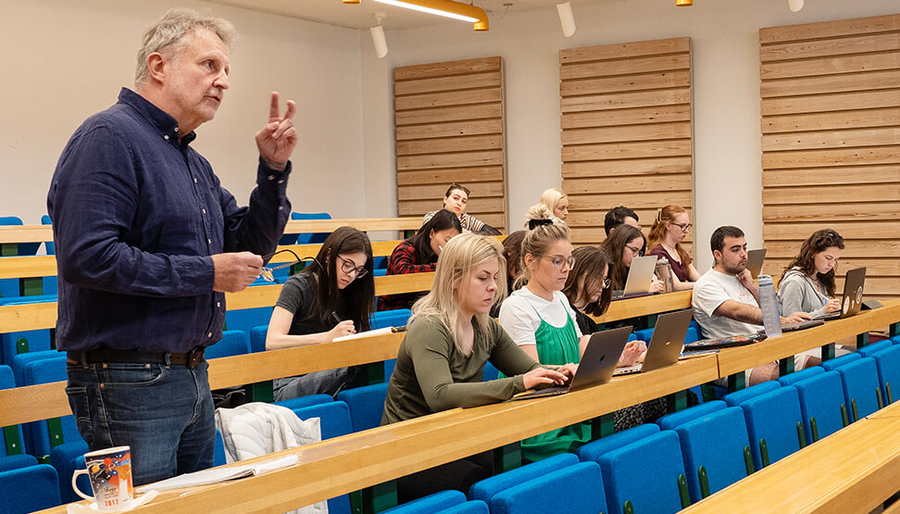
Application deadlines
Study start in September
1 March at 23:59
Application deadline for Danish applicants and applicants from within the EU, EEA and Switzerland.
Open for applications from 16 January. You will receive a reply by 10 June.
15 January at 23:59
Application deadline for applicants from outside the EU, EEA and Switzerland.
Open for applications from 15 November. You will receive a reply by 1 May.
How to apply
Choose your category and read how you apply for admission. You can also find information about deadlines and documentation requirements.
Please note that you must also select according to your citizenship:
- Citizen from Denmark, EU, EEA or Switzerland (EU)
- Citizen from countries outside EU, EEA or Switzerland (NON-EU)

How we assess your application
The programme accepts a maximum of 40 students. One third of the seats may be reserved for students from countries outside the EU/EEA.
If the number of qualified applicants to the programme exceeds the number of places available, qualified applicants will be prioritized according to the following criteria:
- Grade point average from the bachelor's degree
- Relevant internships and/or work and relevant stays abroad
| Admission statistics Human Biology 2025 | |
|---|---|
| Admitted (of which have start in February) | 37 (0) |
| Admission distribution (legal right/other) | 0% / 100% |
| Applicants | 290 |
| Age average | 24 |
| Nationality (dk/international) | 30% / 70% |
Programme structure
The MSc in Human Biology is a 2-year programme taught in English. The programme is well-established and well-funded, there are many courses and lectures, and the workload is substantial.
There are approximately 40 students in a year, and the programme consists of approximately:
- 50 % mandatory courses
- 10 % elective courses
- 40 % thesis
During the first year, you take several courses which provide a comprehensive basic introduction to key areas of study. The classes include scientific theory, problem-solving exercises, laboratory work, and patient demonstrations. In the second year, you will join research groups and specialise in your area of interest while taking elective courses and finalise by writing an extensive thesis.
The teaching consists of lectures, project work, and laboratory exercises, including a course granting experimental handling of research animals (mandatory).
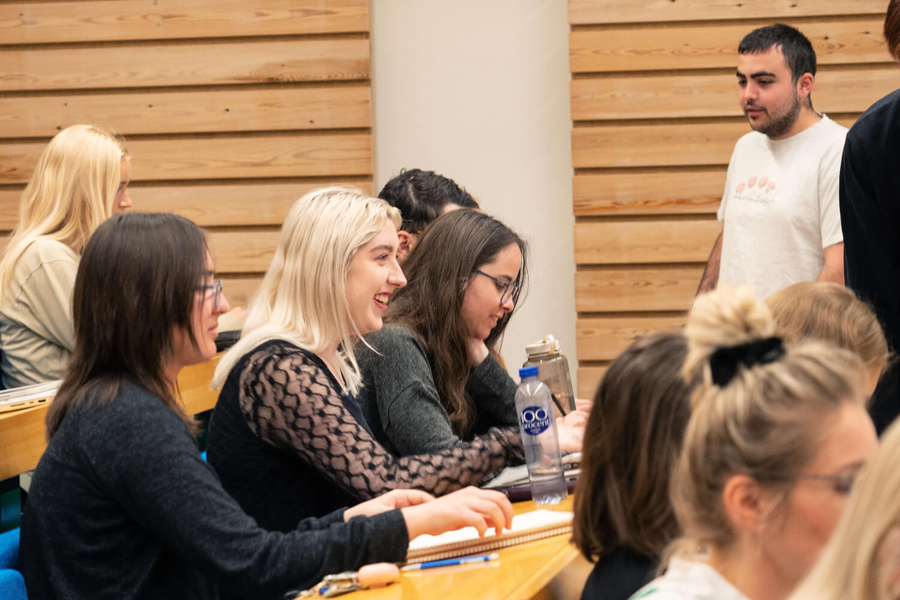
| 1st semester | 2nd semester |
|---|---|
| Elective courses and/or Master Thesis Project | Elective courses and/or Master Thesis Project |
You have 10 ECTS, which can be used for elective courses. These can be found domestically or abroad. The courses offered in house include Neuronal Signaling, Stem Cells and Advanced Methods for the Analysis of Proteins.
Your elective credits can also be used for summer courses both at the University of Copenhagen and abroad.
You will write an extensive thesis founded on your experimental work. The thesis is almost a full-time study year (50 ECTS), enabling you to start research early on.
The thesis can be carried out at the university or combined with a research placement at pre-clinical or clinical laboratories, at private or public institutions, such as hospitals, clinical departments, large pharmaceutical companies, or leading biotech firms in Denmark and internationally. The master's project gives the student substantial experience in individual experimental work.
Some students write their thesis in research departments abroad. The research placement is planned by the student in cooperation with their chosen host institution and their main supervisor at the University of Copenhagen.
Career opportunities
Upon completion of the master’s programme, you will obtain the title Master of Science in Human Biology.
Graduates will be able to conduct independent research, as well as to evaluate and consult on complex problems relating to human health.
The close connection between the programme and research groups at the university, the hospitals and in the industry gives you a great network and springboard in the transition from student to graduate.
With a degree in Human Biology, you are prepared for a wide range of careers within research, development, and consulting. Additionally, it is an excellent foundation for further PhD research as more than 50% graduates continue as PhD students.
Training at the highest academic level
It is an ambitious study programme that provides advanced theoretical and experimental training within the fields of molecular biology and the natural sciences. The aim is to provide students with the necessary skills and qualifications to start an independent research career.
Focus on research
As a student, you will develop skills in research methodology and laboratory techniques. As part of your thesis, you have the opportunity to spend the 2nd year of your degree conducting independent research in hospitals, clinical departments, large pharmaceutical companies, or leading biotech firms in Denmark and internationally.
The degree is an excellent basis for entering a PhD within biomedical research.
Interdisciplinary study
During the programme, students are exposed to several disciplines and can connect and integrate different areas of study and scientific approaches.
Students come from a variety of academic backgrounds which enhances the interdisciplinary element of the programme.
A fully international programme
The programme is taught entirely in English and is an international research-oriented masters degree. The student body is very internationally diverse.
Flexibility and small teams
You have the opportunity to influence course content and help shape your degree so that topics you find relevant are represented.
Students also benefit from the opportunity to work in small focused teams.
The programme focuses on the study of the biological processes affecting human beings in health and disease. The broad study of human biology combined with substantial research and experimentation work gives students a unique set of biomedical and research skills.
As a graduate you will be able to conduct independent research, as well as to evaluate and consult on complex problems relating to human health.
After completing the course Laboratory Animal Science, you obtain a legal license to perform independent research which includes handling of research animals.
Graduates are employed in both the public and private sector, for instance, in:
• the biomedical industry
• research institutions in the environment sector or other sectors
• biotech companies
• food technology firms
• research centers
• hospitals
• academic institutions
There is close to no unemployment for graduates. More than half of graduates continue with a Ph.D. and pursue a career in research.
From Human Biology to working life
Agnete Kirkeby: “I hope to make a difference for patients”
Meet Agnete Kirkeby, who is a graduate in Human Biology. Today, she works as an associate professor, researcher and team lead at the University of Copenhagen and Lund University.
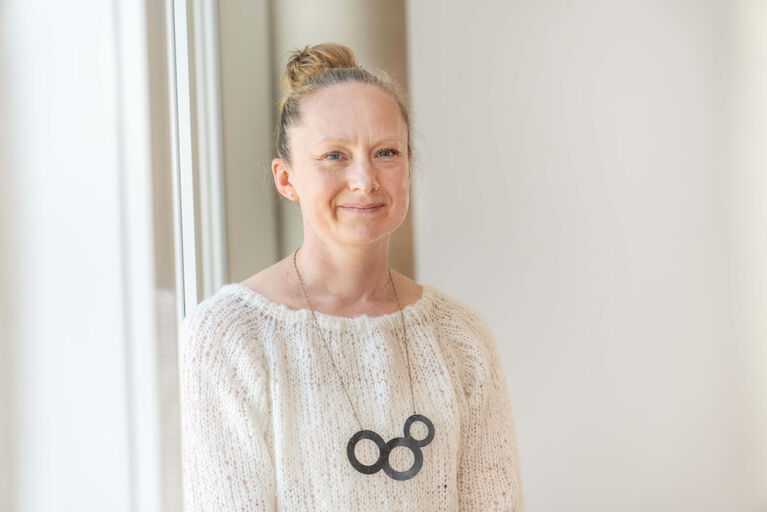
As a university researcher I can pursue my ideas, my drive. You can think of it as academic entrepreneurship, where creative freedom goes hand in hand with stable conditions of employment and financial security.
Fabian Pfersdorf: "The diversity is what I enjoy the most"
Meet Fabian Nico Pfersdorf who is a graduate in Human Biology. Today, he is a PhD student at the University of Copenhagen, Department of Biomedical Sciences.
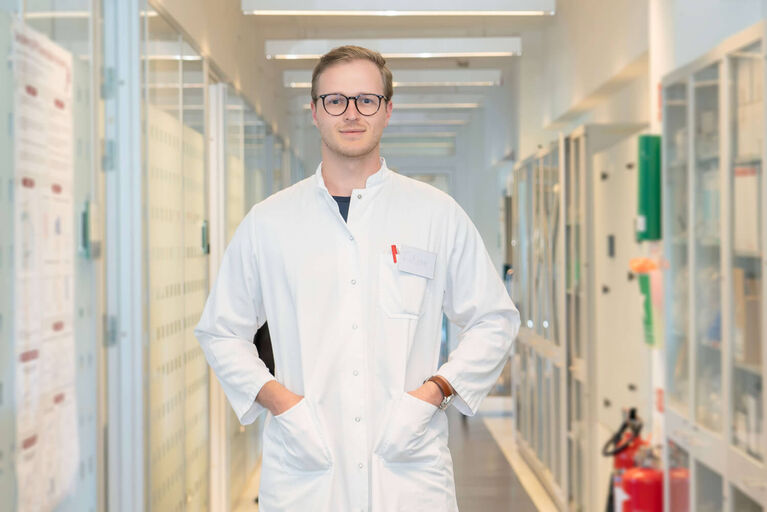
Learning about what we don’t yet understand or aren’t really sure about can pique your curiosity and make you want to dig deeper.
Student life
Many students are engaged in various extracurricular activities, for example, sports, social events and the university’s yearly music festival. You have your own quarter for organizing social activities.
You will primarily be studying at the University of Copenhagen’s North Campus, joining students from many other disciplines within the field of health and medical sciences.
The North Campus includes state of the art facilities for research and education and a view of the city form the top of a 15- floor tower, which below houses a light dining hall, auditoriums, classrooms and laboratories.
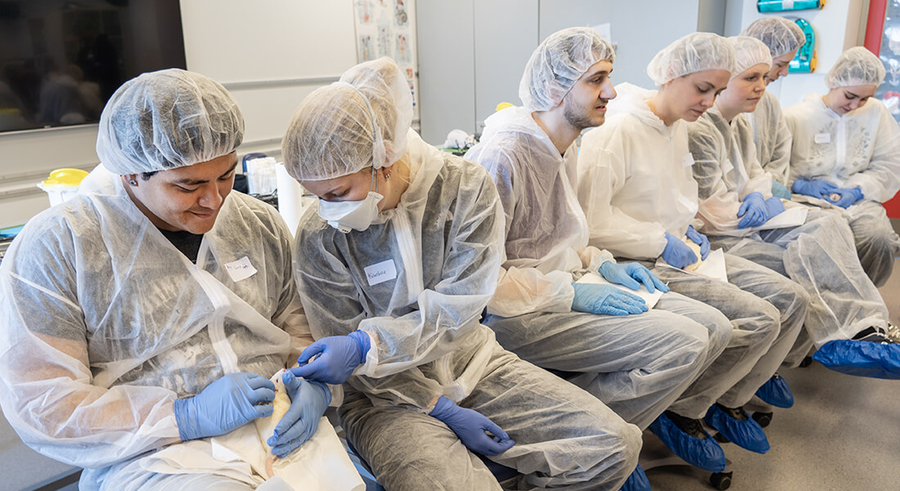
Contact student guidance
Questions about study choice and admission
Our student guidance are ready to assist you with answers to your questions about:
- application procedure and the digital application portal
- admission- and language requirements
- documentation
- study life
- career opportunities
- study choice or doubts
Did you not find what you were looking for?
You can find answers to questions most often asked by potential students in the FAQ. Read the FAQ
Questions about the digital application-portal?
Do you have questions about digital application? Check our user guide to the application portal.
In case of technical problems, please contact the IT-support by
- Mail: it-service@adm.ku.dk // Tel: +45 35 32 32 32
Location
- North Campus, Blegdamsvej 3B, DK-2200 København N.
